Government, private sector ventures transform Bulawayo schools

Nqobile Tshili, Chronicle Reporter
GOVERNMENT’S policy of public-private partnerships is transforming Bulawayo schools and reducing congestion as new classroom blocks have been constructed at six schools in the city’s western suburbs.
Most Government schools have high enrolments with less infrastructure which affects the delivery of education. As a result, the Primary and Secondary Education Ministry in partnership with the Church of Jesus Christ of Latter-day Saints has constructed several classroom blocks in six schools in the western suburbs.
The partnership resulted in the church availing US$353 000 for the construction of new classrooms at Cowdray Park Primary Secondary, Mncumbatha Secondary School, Mandwandwe High School, Emganwini High School and Pumula South Secondary
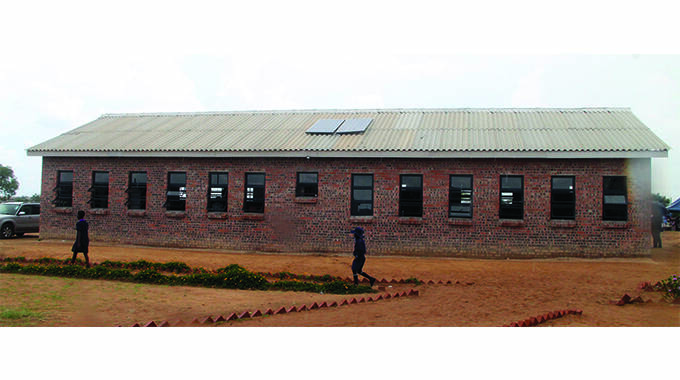
Cowdray Park Primary School
At Maphisa Primary School, a specialist classroom was equipped with 50 chairs, 12 work tables, 25 sewing machines, two-gas stoves, a four-plate electric stove, a refrigerator and some cutlery in line with the delivery of competence-based education curriculum.
Yesterday, the Government commissioned six classrooms at Cowdray Park Primary School and the Church of Jesus Christ of Latter-day Saints committed to start constructing an Early Childhood Development classroom at the school next week.
Primary and Secondary Education Ministry Permanent Secretary Mrs Tumisang Thabela commended Bulawayo Provincial Affairs and Devolution Minister Judith Ncube for her leadership in ensuring that the partnership was realised.
Primary and Secondary Education Minister Dr Evelyn Ndlovu, who was represented by Minister Ncube said Government cannot go it alone in the delivery of effective quality education hence the partnership with the private sector. Dr Ndlovu said there is a need to decongest existing schools, especially in the wake of the Covid-19 pandemic.
She said the ministry is also compelled to reduce the walking distance for learners and this demands that new infrastructure be constructed.
“The Government of Zimbabwe is fully supportive of investment models that facilitate increased private sector participation in the education sector, such as Joint Ventures and Build-Operate -and-Transfer (BOT) which, where applicable, will be underpinned by necessary Government approvals within the framework of the Joint Ventures Act,” she said. Dr Ndlovu said as a result, the Primary and Secondary Education Ministry signed a five-year Memorandum of Understanding with the Church of Jesus Christ of the Latter-Day Saints last year in September to help develop some schools.
She said the partnership has changed the face of some Bulawayo schools while minimising pressure on Government’s purse.
Dr Ndlovu said the partners constructed Mncumbatha Secondary School’s administration, rehabilitated its borehole and installed two 10 000 litre water tanks.
“Each of the completed classroom blocks was fully equipped with 40 desks, 40 chairs and two tables and chairs for use by the teachers. The specialist room at Maphisa Primary School was equipped with 50 chairs, 12 work tables, 25 sewing machines, 2 gas stoves, a four-plate electric stove, a refrigerator and some cutlery,” said Dr Ndlovu.
“What makes this donation so special is the impact it has had not just on one school but on six schools in the province. A total amount of US$ 353 049 was utilised and you will agree with me that this is a substantial amount, all in a bid to better the education of our children.”
She said the new structures will ease the congestion experienced in schools while fulfilling the country’s philosophy, “leaving no learner behind.”
Dr Ndlovu said the new infrastructure also relieves pressure from parents who are expected to develop the schools.
She said with improved learning infrastructure, the institutions must improve pass rates.
“My Ministry looks upon Bulawayo Metropolitan Province to fully utilise the facilities and realise greater results in the area of; improved pass rates in both primary and secondary schools, increased enrolments, attendance and retention of school-going age children.
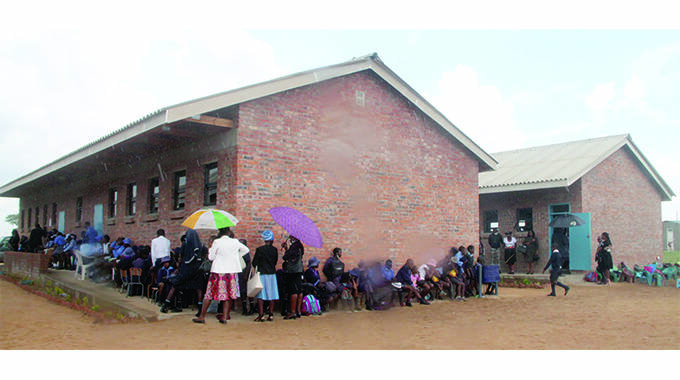
Cowdray Park Primary School
Improved facilities can mean a physically and mentally healthier environment,” she said.
“Such facilities can also enhance access to education to out-of-school children through the Non-Formal Education route, thereby strengthening the lifelong and continuing education strategy to empower communities around the benefitting schools.”
Dr Ndlovu said the construction of new schools and the rehabilitation of existing facilities will enhance goals of achieving the national and global goal of universal access to education by all school-age children as per Sustainable Development Goal 4 (SDG 4).
“My Ministry remains committed to fulfilling the aspirations of pupils in Zimbabwe by providing a transformative educational service that equips them to face their future with determination and power to transform the socio-economic fortunes of the nation,” said Dr Ndlovu.
She said infrastructure development is one of the key pillars of the Competence-Based Curriculum, which requires additional infrastructure such as science laboratories for learning areas such as Chemistry, Physics, Biology and Geography.
Dr Ndlovu said there is a need to improve information communication technology infrastructure that will enable Internet connectivity while schools should be connected to renewable energy such as solar and biogas.
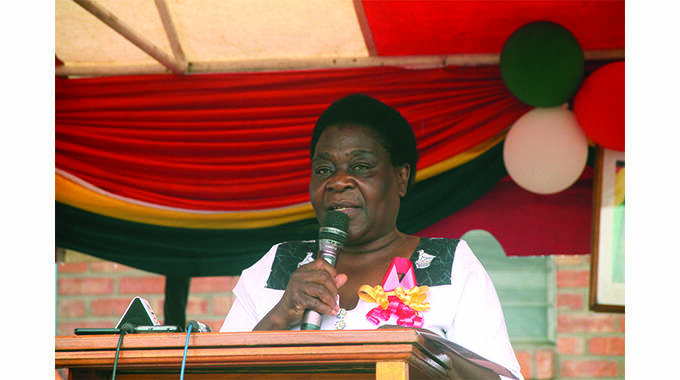
Primary and Secondary Education Ministry Permanent Secretary Mrs Tumisang Thabela (right) helps Bulawayo Provincial Affairs and Devolution Minister Judith Ncube unveil a plaque at one of the commissioned classroom blocks at Cowdray Park Primary School yesterday
Church of Jesus Christ of Latter-day Saints representative Elder Muzingaye Ndlovu said the partnership with the education ministry is part of the church’s humanitarian work under the programme “Helping Hands.”
“We are here at Cowdray Park Primary School where we have developed about six classroom blocks, in Emganwini High School we developed two classrooms, Mandwande High School two classrooms, Mncumbatha two classrooms, administration block and we upgraded the ablution facilities and installed a solar pump on their borehole,” said Elder Ndlovu.
“We also installed a Jojo tank. At Pumula South High School we built two classrooms, at Maphisa Primary School we re-modeled and furnished a food and clothing science room.”
He said the church will next week start the construction of an Early Childhood Education classroom at Cowdray Park Primary School as it responds to community challenges.
Elder Ndlovu said it was important for other organisations to lessen the burden on Government to deliver social services in communities.
“What we are saying is that as a community if we start helping our neighbours and we move to help our community and also help our city, everyone one of us will make the burden that the Government carries much lighter every day,” said Elder Ndlovu.
“We will continue partnering with the ministry, Government and public works in ensuring that development continues in the city of Bulawayo. We are here to serve, we are going to serve until Christ comes.”
@nqotshili



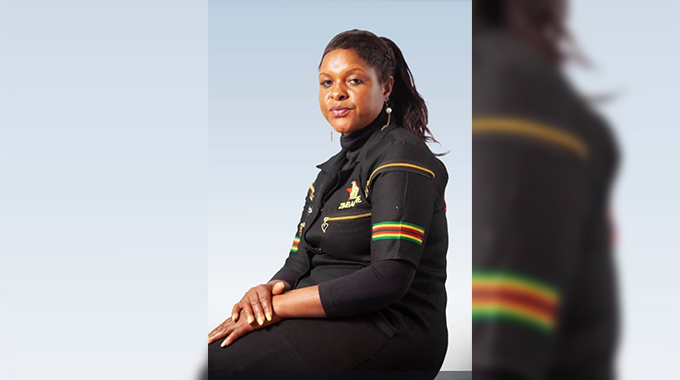
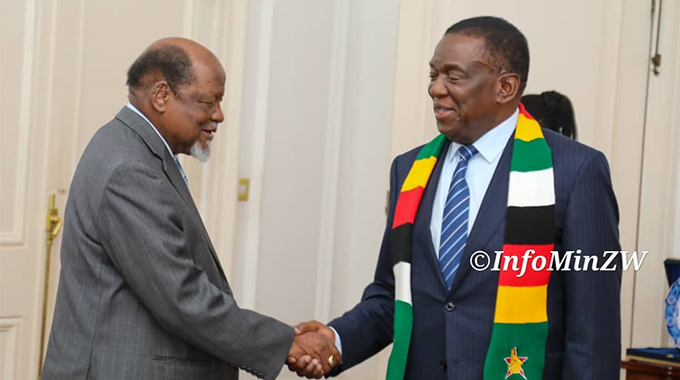
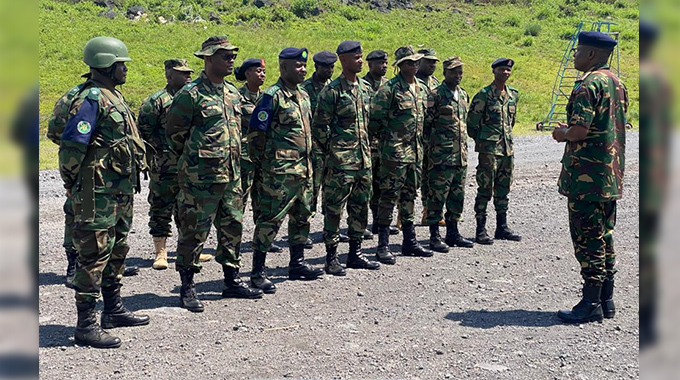






Comments